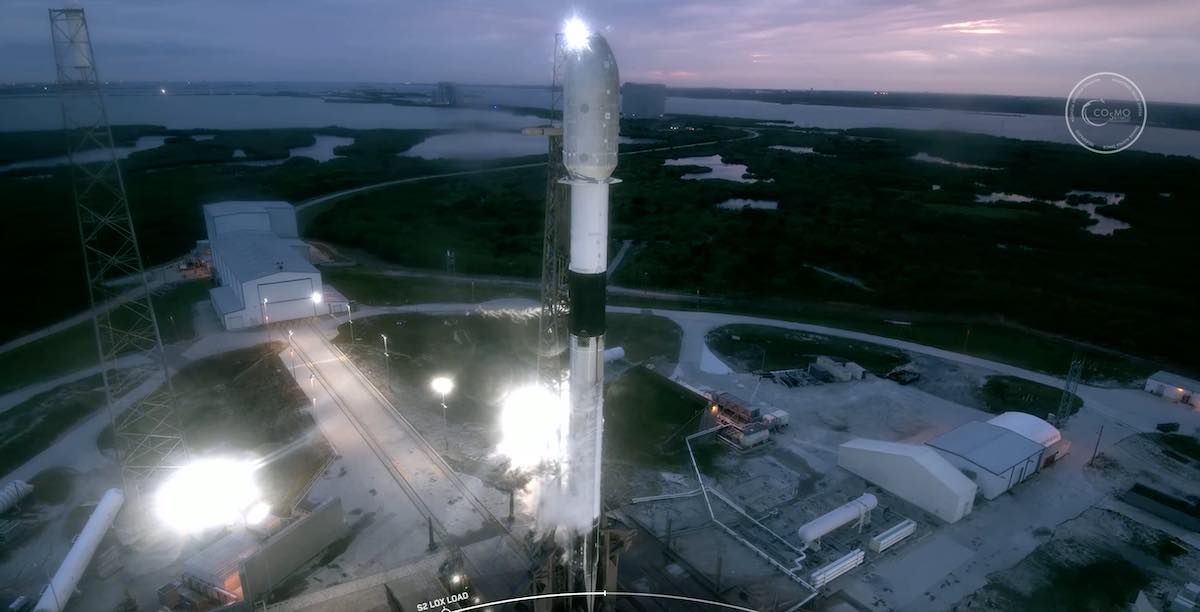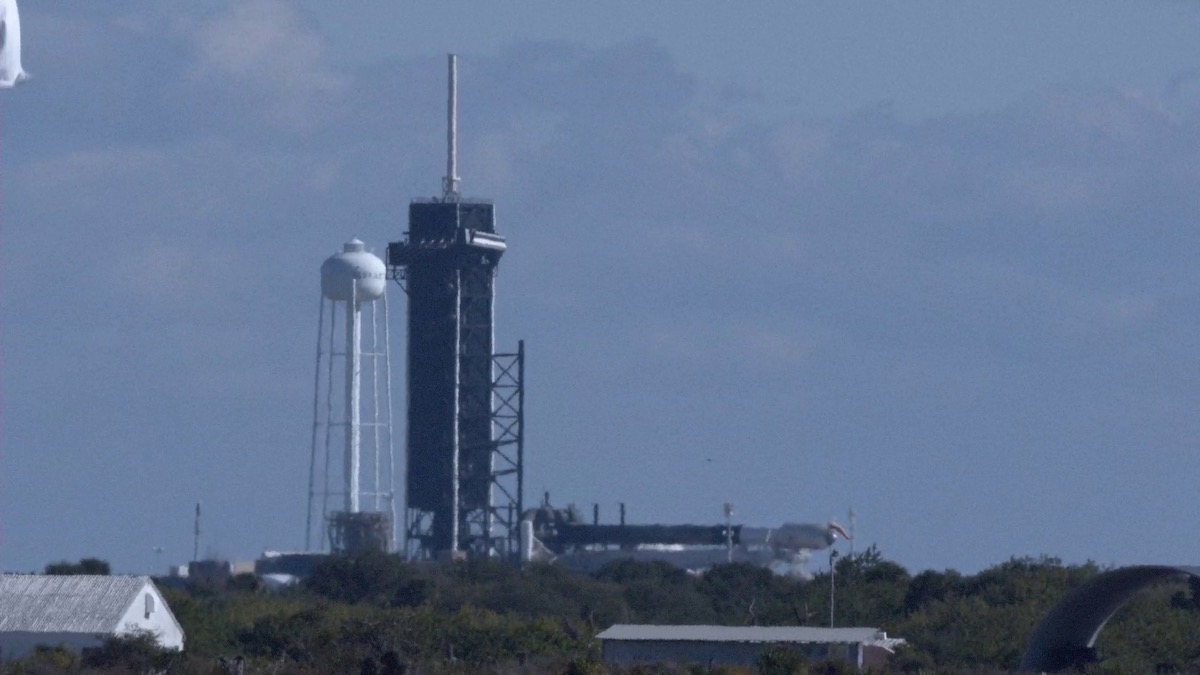EDITOR’S NOTE: Updated Jan. 29 with one-day delays for both launches.

SpaceX has delayed the launch of a Falcon 9 rocket and an Italian radar satellite for three straight days, and is now aiming to send the mission aloft Sunday evening from Cape Canaveral. The following launch on SpaceX’s schedule, set to carry Starlink internet satellites into orbit from nearby Kennedy Space Center, was delayed from Sunday until Monday.
SpaceX’s planned launch of Italy’s COSMO-SkyMed radar surveillance satellite was originally scheduled Thursday, but rain showers, low visibility, and thick clouds caused officials to call off the launch attempt before loading propellants into the Falcon 9 rocket.
Conditions at Cape Canaveral improved Friday, but a blanket of thick clouds remained in place over the spaceport. SpaceX scrubbed the launch with fewer than 10 minutes left in the countdown.
SpaceX planned to try again Saturday, but officials announced several hours before liftoff that the COSMO-SkyMed mission from pad 40 at Cape Canaveral Space Force Station would be delayed again until Sunday at 6:11 p.m. EST (2311 GMT) as weather conditions impacted pre-launch operations at the launch site.
The Falcon 9 rocket will fly south from Cape Canaveral’s Complex 40 launch pad over the Atlantic Ocean, tracking parallel to Florida’s east coast, then over the Straits of Florida, Cuba, and the Caribbean Sea to place the Italian radar imaging satellite into a polar orbit.
The reusable first stage booster, flying for the third time, will return to Landing Zone 1 at Cape Canaveral for a propulsive touchdown.
Meanwhile, SpaceX technicians a few miles to the north of pad 40 at Kennedy Space Center rolled another Falcon 9 rocket out to pad 39A on Saturday morning. That rocket, which will be raised vertical later this weekend, will take off with another batch of 49 satellites for SpaceX’s Starlink internet network.

The Starlink mission was initially booked on the military-run Eastern Range for launch Saturday, but was delayed to Sunday, and then to Monday at 2:17 p.m. EST (1917 GMT) in a ripple effect from the launch delays a few miles to the south at pad 40.
A backup launch opportunity is available for the Starlink mission at 5:34 p.m. EST (2234 GMT) Monday.
The target launch times are separated by 20 hours, 6 minutes, which would mark the shortest span between two orbital departures from Florida’s Space Coast since 1967.
As with all rocket launches, SpaceX will only pull off the feat if weather and technology cooperate.
There’s a greater than 90% chance of good weather Sunday evening for SpaceX’s rescheduled launch of an Italian COSMO-SkyMed radar satellite, according to the U.S. Space Force’s 45th Weather Squadron.
For Monday’s Starlink mission, forecasters expect a 90% chance of acceptable launch weather on the Space Coast, along with good wind and sea conditions downrange at the booster’s offshore landing zone near the Bahamas.
SpaceX is slated to follow the launches this weekend with another Falcon 9 flight from Vandenberg Space Force Base in California on Wednesday, Feb. 2. The Falcon 9 rocket set for launch from California will carry a classified payload into orbit for the National Reconnaissance Office, the U.S. government’s spy satellite agency.
SpaceX has already launched three Falcon 9 missions since the start of the year, and is on pace to complete six Falcon 9 launches in less than four weeks, assuming the next three flights occur as scheduled.
Email the author.
Follow Stephen Clark on Twitter: @StephenClark1.
